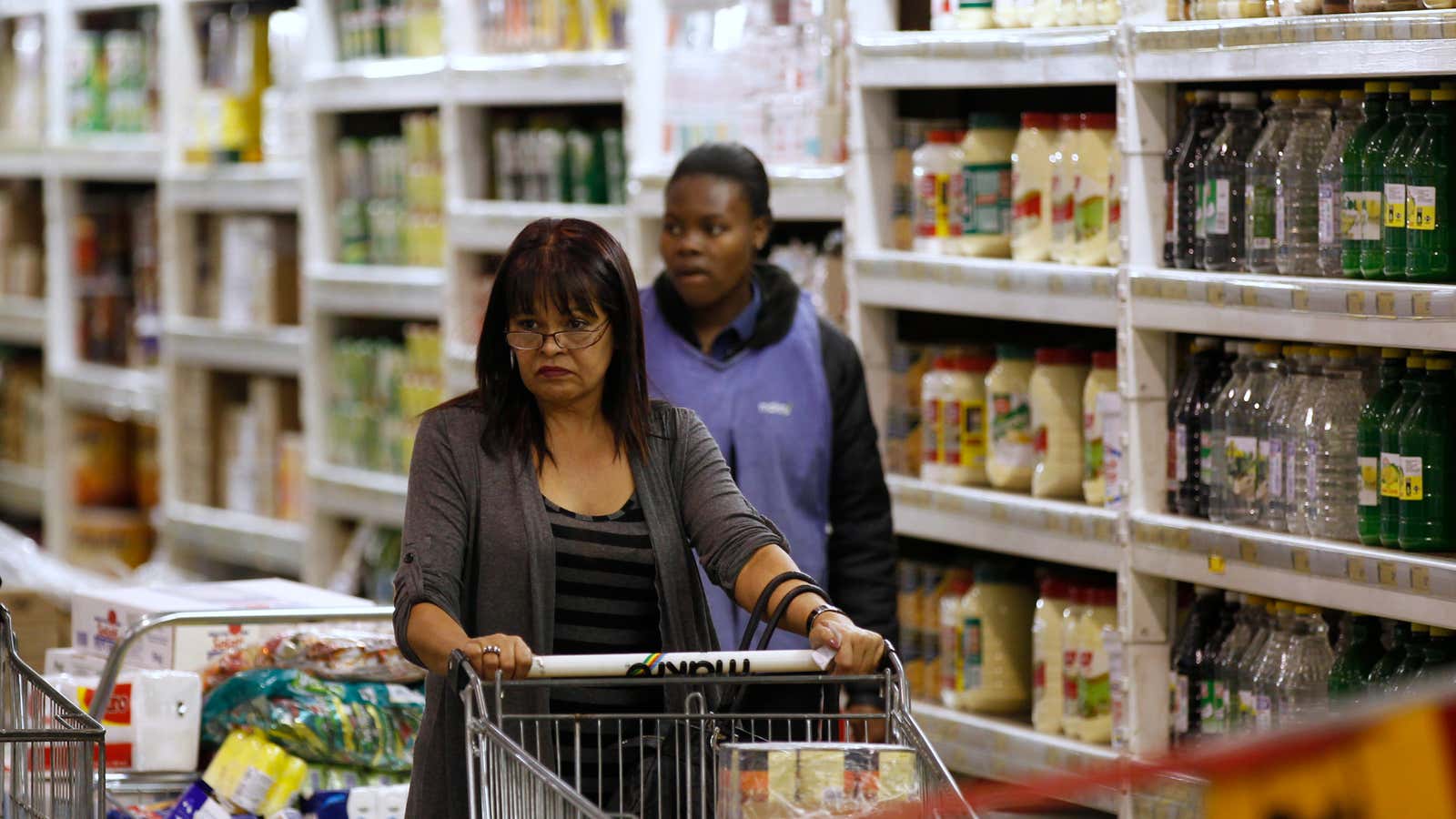South Africa’s consumer confidence is now at its lowest level since 2000. The index, released yesterday by First National Bank and the Bureau of Economic Research, said confidence had nosedived to -15 points in June, from -4 in the previous quarter.
To put that into perspective, the index was at -6 points at the start of the global recession in 2008. In 2000, when half a million jobs were a lost as a result of a policy that didn’t favor job growth, consumer confidence plummeted to -17 points. The worst ever was in 1985, when the index reached -33 as Western multinationals divested from South Africa during Apartheid.
Large purchases—like houses, cars and expensive household equipment—tend to stall when consumer confidence drops—and the state of South Africa’s economy is not doing much to encourage spending.
Despite efforts to jumpstart the country’s economy through the National Development Plan, the South African economy—which is expected to grow by only 2% this year—is facing numerous challenges that include increased public wage demands, ongoing electricity blackouts, a depreciating currency, and decreasing foreign-direct investment inflows.
Recent figures (pdf) also showed unemployment in South Africa has increased to 26.4% in the first quarter of 2015, up two percentage points from the end of 2014. During the same period, private sector turnover dropped by 5.2%.
After concluding a visit to the country last month, the International Monetary Fund said the ongoing electricity blackouts would constrain economic growth. “With potential growth estimated to have declined to 2–2.5%, alleviating electricity bottlenecks and implementing structural reforms are key to reviving growth and creating more jobs,” it said.
